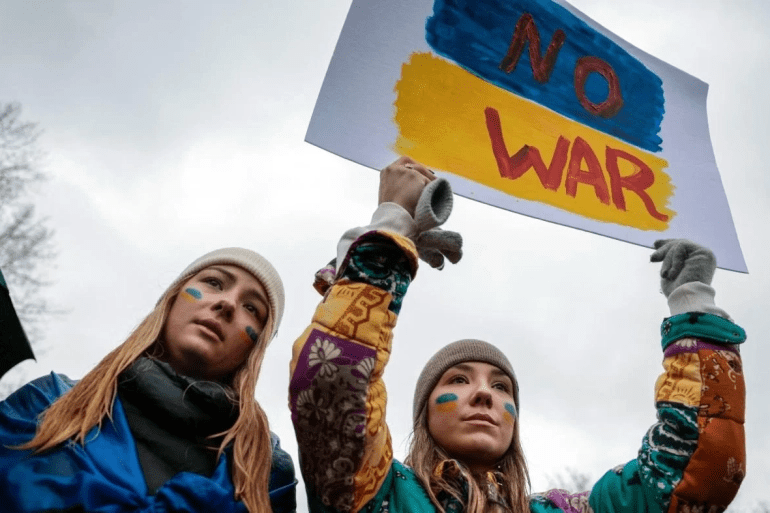Since Russia’s invasion of Ukraine, the West has viewed any attempt to balance the crisis as betrayal, applying the logic: “Either support Ukraine in its heroic struggle against a brutal Russia, or become Putin’s proxy.”
In an article published on the Middle East Eye website, former Italian diplomat Marco Carnelos asked how the West could think so narrowly.
The war in Ukraine is escalating given Russian President Vladimir Putin’s determination to bring regional benefits to his country and the West’s determination to prevent that from happening, Carnelos said.
a thin line
The article pointed out that Washington has recently given up its hesitation to provide weapons to Kyiv, and tanks, heavy artillery and fighter jets have poured into Ukraine.
Russia is also now investigating the “sabotage” of British elements on Ukrainian soil, which means the British may have been involved in the fight against the Russians.
The former Italian diplomat believes that in Russia’s war with NATO, the line between proxy warfare and direct confrontation has now become a fine line. Statements by both sides confirming their readiness to continue the war make it clear that there is no diplomatic space for the foreseeable future.
It even went so far that Philip Breedlov, the former top commander of NATO’s coalition forces in Europe, suggested sending troops to Ukraine, saying that Putin’s fear of using nuclear weapons should not prevent NATO from intervening.
dangerous ridiculous game
To highlight the extent of international divergence in positions on the conflict, and the West’s intolerance of positions taken by other countries, the authors argue that NATO, the European Union and the G7 are working to make Russia an international outcast. At the same time, countries such as Brazil, India, China and South Africa, as well as the so-called southern hemisphere countries, have maintained a marked distance from the crisis, especially in carefully avoiding Western narratives of war.
Indeed, the vast majority of the UN General Assembly has condemned Putin’s invasion of Ukraine and Russia’s seat on the Human Rights Council has been suspended, but only NATO, EU and G7 members have imposed sanctions against Russia, Carnelos said.
During the G20 finance ministers meeting, no ministers followed members of the US, Canada, UK and Australia delegations out of the hall to protest the presence of the Russian representative. EU officials also did not leave the hall during the Moscow representative’s remarks.
In addition, Indonesia and China, which hold the rotating presidency of the G20, blocked a proposal to expel Russia from the group.
Given these enormous risks and deep divisions, one might think that the positions of the major players in the international community were taken after a thorough debate and critical thinking weighed the issues, but these positions were not discussed, especially in Europe, the authors say.
The author argues that the conflict has become a dangerously ridiculous game, and Russia appears to have found itself, as some of its officials have expressed, faced with two choices: win the war or be destroyed. The West will not accept a solution less than regime change in Moscow.

either for or against
The former Italian diplomat said the West’s logic in handling the war is similar to the famous logic used by former US President George W. Bush after the “September 11 attacks” in 2001, “either with us or with terror.” Molecules are together.”
In this context, the authors note, any attempt by the West to come up with a logical political analysis is seen as a betrayal. Prominent international relations scholars, such as John Mearsheimer, have been maligned for their evidence-backed skepticism about the past actions and inactions of all major players in the crisis.
The authors stress that the West is not trying to understand whether Russia’s security concerns and past political claims are justified and whether they should be better dealt with.
The former Italian diplomat concluded his article by recalling that democracies are known for allowing legitimate questions and doubts to be asked, while authoritarian regimes maintain a long tradition of suppressing public opinion and debate, but today both sides of the conflict use The same means as authoritarian regimes.
